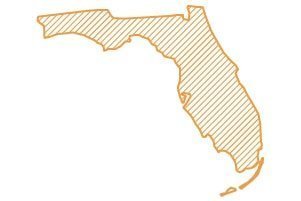Mississippi offers a variety of Masters in Psychology programs from five different schools. These schools offer a total of 12 different degree programs, including Master of Arts, Master of Science, Educational Specialist, and Doctor of Psychology. These programs are designed further to develop the knowledge and skills of psychology professionals and prepare them for successful careers in the field.
Mississippi is also home to reputable Doctorate and Ph.D. programs in Psychology, with universities like the University of Mississippi providing comprehensive training and opportunities for students pursuing advanced degrees in the field.
Offered courses cover a wide range of topics, including clinical psychology, developmental psychology, neuropsychology, experimental psychology, and industrial/organizational psychology. Program options vary by school, including online, hybrid, and on-campus programs.
Master’s in Clinical Psychology
William Carey University Master of Science degree in Counseling Psychology

William Carey University’s Master of Science degree in Counseling Psychology is an accredited program located in Hattiesburg, Mississippi, that provides students with the skills and knowledge necessary to pursue a career in counseling. The program offers concentrations in areas such as Marriage and Family Therapy, Mental Health Counseling, and School Counseling. Students can learn in a supportive environment and gain experience through internships and practicums. With a focus on developing strong counseling skills and a solid foundation in psychological theory and research, graduates are prepared to make a positive impact in the field of counseling psychology.
Click here for Masters in Clinical Psychology programs in the state of Mississippi.
Master’s in Counselling Psychology
University of Southern Mississippi M.S. in Counseling Psychology

The University of Southern Mississippi’s M.S. in Counseling Psychology program is a two-year program located in Hattiesburg, Mississippi. It is accredited by the Southern Association of Colleges and Schools Commission on Colleges. This program offers students the unique opportunity to gain the necessary knowledge and skills to become a licensed professional counselor. Students will develop a strong foundation in the field of counseling psychology. They will be able to specialize in areas such as individual counseling, marriage and family counseling, and career counseling. The program also offers concentrations in substance abuse, mental health counseling, and school counseling. Students will learn about the principles of counseling and psychotherapy, develop their clinical skills, and gain in-depth knowledge about psychological assessment. The program also offers practicum experiences, allowing students to gain hands-on experience in the field.
Mississippi Psychology and Mental Health-Focused Organizations
- Mississippi Psychological Association (MPA) – The MPA is a professional organization for psychologists in Mississippi that aims to promote the science and practice of psychology and advance the mental health of Mississippians. They offer networking opportunities, professional development, and advocacy for the field of psychology.
- Mississippi Association of Addiction Professionals (MAAP) – MAAP is an organization for addiction professionals in Mississippi that offers education, training, and advocacy for treating addiction and substance abuse. They provide resources and support for individuals in recovery and professionals working in the field.
- Mississippi Department of Mental Health (DMH) – The DMH is a state agency that provides mental health services and support to Mississippi residents. They offer various services, including crisis intervention, outpatient treatment, and community-based support for individuals with mental health conditions.
- Mental Health Association of Mississippi (MHAM) – The MHAM is a nonprofit organization that works to improve the lives of individuals living with mental illness in Mississippi. They offer education and support services to individuals and families affected by mental illness and advocate for improved access to mental health care and services.
- National Alliance on Mental Illness (NAMI) Mississippi – NAMI is a nationwide organization dedicated to improving the lives of individuals affected by mental illness. The Mississippi chapter offers education, support, and advocacy for individuals with mental illness and their families and resources for mental health professionals.
- Mississippi Behavioral Health Association (MBHA) – The MBHA is an organization that advocates for improved access to behavioral health services in Mississippi. They work to promote the use of evidence-based practices and support the development of a comprehensive behavioral health system in the state.
Mississippi Data and Mental Health Statistics
- According to the Substance Abuse and Mental Health Services Administration (SAMHSA), in 2020, an estimated 201,000 adults in Mississippi (11.1%) experienced a serious mental illness in the past year.
- Mississippi has one of the highest rates of suicide in the country, with a rate of 17.3 deaths per 100,000 people in 2020, according to the Centers for Disease Control and Prevention (CDC).
- The Mississippi Department of Mental Health reports that in 2020, there were 19,924 admissions to state-operated mental health hospitals and community mental health centers.
- According to the National Alliance on Mental Illness (NAMI) Mississippi, the state ranks 48th in the country for access to mental health care.
- The Mississippi Behavioral Health Barometer, published by SAMHSA in 2020, found that 17.4% of Mississippi adults with a mental illness did not receive treatment in the past year.
- The Mississippi Statewide Plan for Mental Health 2020-2024 reports that the state needs more mental health professionals, with only 88.2 psychiatrists and 56.5 psychologists per 100,000 residents.
- The plan also notes that Mississippi has a high rate of poverty, which can contribute to mental health issues, as well as a high prevalence of chronic health conditions such as diabetes, hypertension, and obesity, which can also have an impact on mental health.







